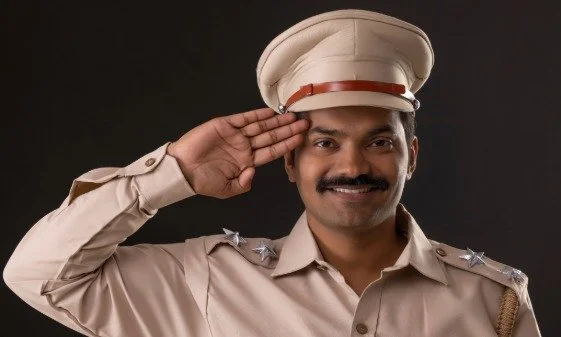Maharashtra Deputy CM Allegedly Threatens IPS Officer Over Mining Crackdown
Video Purports to Show Ajit Pawar Ordering Officer to Halt Action in Solapur District
September 7, 2025
Photo used for representation only
A video has emerged in which Maharashtra’s Deputy Chief Minister Ajit Pawar is purportedly heard ordering a senior police officer to stop taking action against illegal soil excavation. Pawar’s party has attempted to explain the exchange, but the incident contradicts the constitutional framework that separates political authority from administrative functioning.
The incident occurred in Kurdu village in Solapur district, where Deputy Superintendent of Police Anjana Krishna was reportedly acting against the illegal excavation of murrum, a type of soil used in road construction. During the operation, individuals involved allegedly contacted Pawar and handed their phone to the officer, The Indian Express reported.
In the video, shared by Brut India, the man on the line identifies himself as Ajit Pawar and says, “I am the Deputy Chief Minister speaking to you… I order you to stop the action… Go and tell your Dr. Shridhar (a senior official) that the Deputy CM has ordered for the action to be stopped.”
The IPS officer, who did not initially recognise his voice, asked him to call her on her official number. The man responded, “Ek minute… main tere upar action lunga,” meaning “One minute… I will take action against you.” The video also shows him demanding her number and accusing her of showing disrespect, Mid-Day reported.
Pawar’s Nationalist Congress Party (NCP) has denied any wrongdoing on his part. “Ajit Dada may have rebuked the IPS officer to placate party workers. He didn’t mean to stop the action completely,” NCP State President Sunil Tatkare said, according to India Today. He added that Pawar is known for “straight talk” and does not support illegal activities.
Opposition parties have criticised the Deputy CM’s conduct.
If the events in the video are verified, they represent an abuse of state power through informal political command over formal institutions.
India’s Constitution places the police under state control, but that control is exercised through laws, rules and institutional channels. Elected representatives are expected to create policy and ensure governance through departments, not interfere in active operations by individual officers. In this case, the Deputy CM reportedly issued personal instructions to the DSP while she was conducting a legal crackdown. That call reportedly came through a local party worker’s phone and included an explicit warning of action against the officer for not complying.
Public administration in India depends on a structured relationship between the political executive and civil services. Politicians can hold officers accountable, but through formal means such as transfers, inquiries or department reviews. They cannot give field-level operational orders. Such instructions are the responsibility of officers designated by law, not political figures, however senior.
The Deputy CM is said to have introduced himself and then told the officer to “stop the action” and inform her superior, Dr. Shridhar, that the order had come from him. The interaction included statements demanding personal recognition and a warning of consequences.
A democracy depends on the reliability of its institutional machinery, which includes the capacity of officers to act independently within the law and without fear of political retaliation. In the video, the officer reportedly asks the caller to contact her on her official number. The caller reacts with anger. The officers was not resisting governance; she was resisting personalisation of power.
The Deputy CM also reportedly told the officer to inform her senior that the order had come from the top. This bypasses all standard procedures for law enforcement coordination. It is the responsibility of departmental heads, police commissioners and secretaries to oversee operations. Ministers are not part of that structure. Giving such instructions through informal calls, instead of official memos or meetings, creates confusion and puts officers at legal risk.
The incident has implications also for the safety of citizens, the credibility of law, and the functioning of democracy, and not just for the individual officer or the police department in Maharashtra.
You have just read a News Briefing by Newsreel Asia, written to cut through the noise and present a single story for the day that matters to you. Certain briefings, based on media reports, seek to keep readers informed about events across India, others offer a perspective rooted in humanitarian concerns and some provide our own exclusive reporting. We encourage you to read the News Briefing each day. Our objective is to help you become not just an informed citizen, but an engaged and responsible one.

